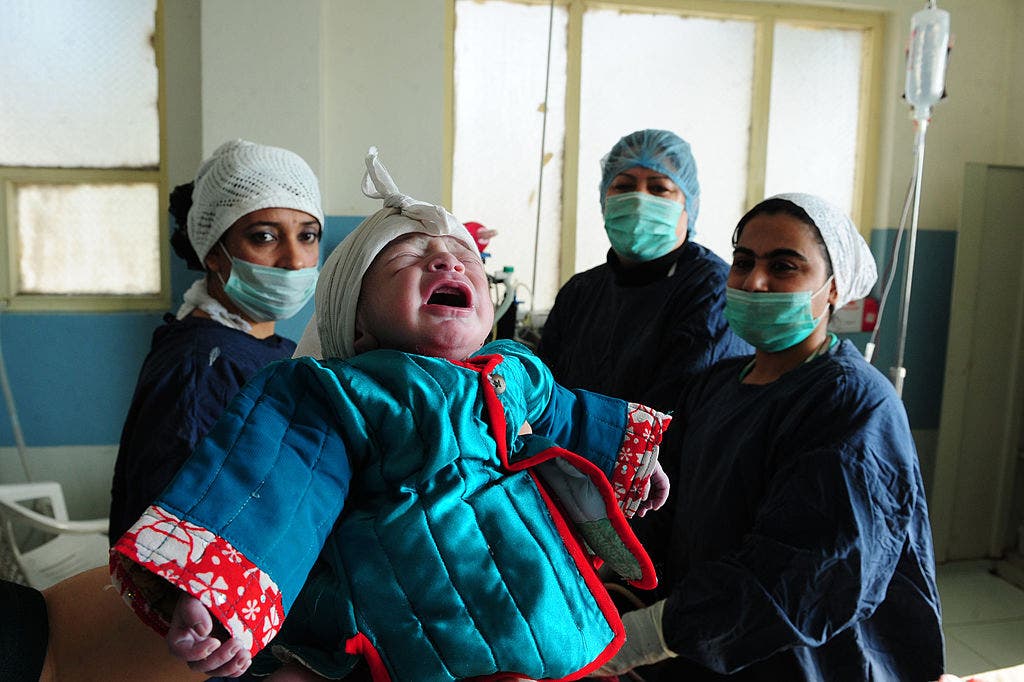The Taliban’s recent ban on women attending nursing and midwifery classes in Afghanistan represents a devastating blow to women’s rights and the nation’s healthcare system. This decree, issued by the Taliban’s supreme leader and communicated through the Ministry of Public Health, effectively closes one of the last remaining avenues for women to pursue education and contribute meaningfully to Afghan society. It extinguishes the hopes of countless women aspiring to these professions and deals a severe blow to a healthcare system already grappling with immense challenges. The ban has been widely condemned by international bodies and human rights organizations as a blatant violation of fundamental human rights and a detrimental setback for Afghanistan’s development. Experts warn that restricting women from these essential roles will inevitably lead to increased maternal and neonatal mortality rates, exacerbating the country’s already precarious healthcare situation.
The impact of this ban is particularly concerning given the existing vulnerabilities within Afghanistan’s healthcare system. The nation already struggles with one of the highest maternal and infant mortality rates globally, with childbirth posing significant risks for Afghan women. The World Bank estimates 620 maternal deaths per 100,000 live births due to pregnancy-related complications, while the World Health Organization reported an estimated 24 daily deaths related to childbirth or pregnancy in 2020. The ban on women’s medical training will undoubtedly exacerbate these alarming statistics, further jeopardizing the health and well-being of Afghan women and children. The lack of female healthcare professionals will be acutely felt in rural areas, where cultural norms often prevent male doctors from treating female patients, leaving a significant portion of the population without access to essential medical care.
The Taliban’s decision is not an isolated incident but part of a broader pattern of repressive policies targeting women since their return to power in 2021. Following their takeover, the Taliban initially promised to respect women’s rights, a pledge they swiftly abandoned. They first barred girls from attending secondary school beyond the sixth grade in September 2021, followed by a ban on women’s university education in December 2022. These policies have systematically dismantled women’s access to education and employment, confining them to increasingly restricted roles within society. This latest ban on nursing and midwifery education reinforces the Taliban’s disregard for women’s fundamental rights and their contributions to the country’s overall development.
The international community has strongly condemned the Taliban’s ongoing repression of women, urging the regime to reverse these discriminatory policies. The United Nations and various NGOs have highlighted the devastating consequences of these bans, not only for women’s individual rights but also for Afghanistan’s future. Restricting women’s access to education and employment has far-reaching implications for the country’s economic and social progress, hindering its ability to rebuild and develop. The ban on female healthcare professionals further undermines Afghanistan’s already fragile health system, putting the lives of countless women and children at risk.
The Taliban’s actions have deepened the humanitarian crisis gripping Afghanistan. Millions of Afghans rely on humanitarian assistance, with widespread malnutrition affecting a significant portion of the population, particularly children. The withdrawal of international funding, driven by concerns over the Taliban’s oppressive policies, has exacerbated the crisis, leaving vulnerable populations even more exposed. The ban on women’s medical training compounds these challenges, hindering the provision of essential healthcare services and further jeopardizing the well-being of the Afghan people.
The Taliban’s systematic marginalization of women represents a tragic regression for Afghanistan, erasing the progress made in women’s rights and education during the previous two decades. The ban on nursing and midwifery education, alongside earlier restrictions on girls’ education and women’s employment, demonstrates the Taliban’s unwavering commitment to a regressive ideology that denies women their fundamental rights and relegates them to a subordinate status. The international community must continue to exert pressure on the Taliban to reverse these discriminatory policies and uphold their obligations under international human rights law. The future of Afghanistan depends on the full and equal participation of all its citizens, including women, in all aspects of society.


